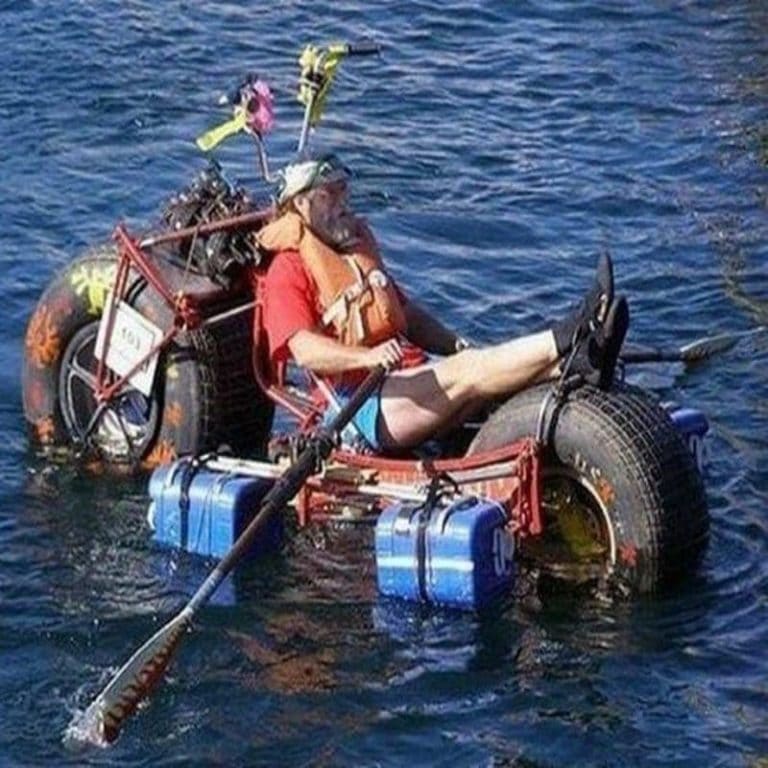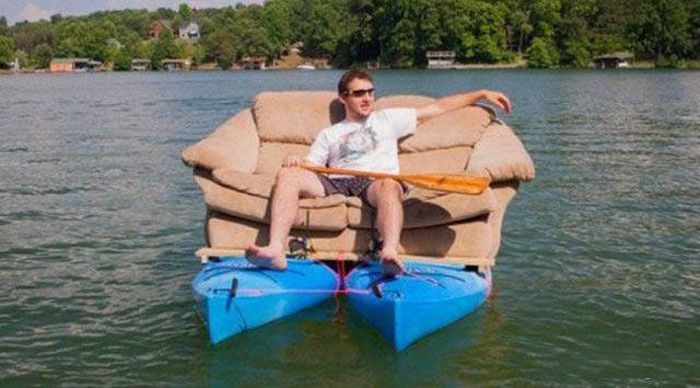
Posted on 05/26/2025 4:23:58 PM PDT by VRW Conspirator
No matter how much experience you have, it’s always a good idea for everyone to review boating safety rules before departures. Below you will find 10 basic boating safety tips to help you stay safe:
1.Be Weather-Wise
Always check local weather conditions before departure; TV and radio forecasts can be a good source of information. If you notice darkening clouds, volatile and rough changing winds or sudden drops in temperature, play it safe by getting off the water.
2.Follow a Pre-Departure Checklist
Proper boating safety includes being prepared for any possibility on the water. Following a pre-departure checklist is the best way to make sure no boating safety rules or precautions have been overlooked or forgotten.
3.Use Common Sense
One of the most important parts of boating safety is to use your common sense. This means operating at a safe speed at all times (especially in crowded areas), staying alert at all times and steering clear of large vessels and watercraft that can be restricted in their ability to stop or turn. Also, be respectful of buoys and other navigational aids, all of which have been placed there to ensure your own safety.
4.Designate an Assistant Skipper
Make sure more than one person on board is familiar with all aspects of your boat’s handling, operations, and general boating safety. If the primary navigator is injured or incapacitated in any way, it’s important to make sure someone else can follow the proper boating safety rules to get everyone else back to shore.
5.Develop a Float Plan
Whether you choose to inform a family member or staff at your local marina, always be sure to let someone else know your float plan. This should include where you’re going and how long you’re going to be gone.
A float plan can include the following information: name, address, and phone number of trip leader name and phone number of all passengers boat type and registration information trip itinerary types of communication and signal equipment onboard, such as an Emergency Position Indicating Radio Beacon (EPIRB) or Personal Locator Beacon (PLB)
6.Make Proper Use of Lifejackets
Did you know that the majority of drowning victims are the result of boaters not wearing their lifejackets? Make sure that your family and friends aren’t part of this statistic by assigning and fitting each member of your onboard team with a life jacket prior to departure. Wear it!
7.Avoid Alcohol
Practice boating safety at all times by saving the alcohol for later. The probability of being involved in a boating accident doubles when alcohol is involved and studies have shown that the effects of alcohol are exacerbated by sun and wind.
8.Learn to Swim
If you’re going to be in and around the water, proper boating safety includes knowing how to swim. Local organizations, such as the American Red Cross and others, offer training for all ages and abilities. Check to see what classes are offered in your area.
9.Take a Boating Course Beginning boaters and experienced experts alike need to be familiar with the boating safety rules of operation. Boater education requirements vary by state; however, some require validated completion of at least one boating safety course. Regardless of your individual state's requirements, it's always important to be educated and prepared for every circumstance that might arise. You can learn boating safety rules by taking a local community course or online course to help educate yourself.
10.Consider a Free Vessel Safety Check Take advantage of a free vessel safety check from the US Coast Guard. They offer complimentary boat examinations to verify the presence and condition of certain safety equipment required by state and federal regulations. Free of charge, they’ll provide a specialist to check out your boat and make helpful boating safety tips and recommendations. They also offer virtual online safety checks as well.

#1. Never put all your guns in the boat at the same time...
11. Don’t bring all of your guns on a single voyage…
Oars?

You two beat me to it!
Be careful, sometimes they carry disease.
Some peeps have vision…..
You left out “Strap your firearms to a flotation device so they don’t get lost in deep water”.

Naw.
FReepers are great boaters.
Where we suck is proper weapons stowage in swells (and calm water).
/s
When the muster drill before leaving the dock makes leftists cry, you KNOW you’ve done your job as the captain.
...because when it goes bad on the water, it goes bad VERY fast!
Wake up newbeies.
Be prepared!
... don’t like the muster drill?
GET OFF!
EVERYBODY’S life depends on everyone and everyone wants to be the captain, until the real life captain SHTF decision stuff happens in real life.
Most have no clue.
Great post.
#GUESTon my Island upon whcih, I’m the king.
yes, please.
1. Install the bilge plug before launching.
Be sure to not take a voyage on a North Korean warship.
A biggy for boat safety is knowing how to pilot the damn thing with regards to the safety of others.
A few years back we were on a lake that was so full of boats the water looked like a blender. It was the 4th of July. We were on our pontoon going fairly slow to avoid mishaps with other boats.
Then a rather large runabout cut right in front of us plowing water. The bow was out of the water and the top of the transom was level with the water. In other words, it was at quite an angle, far from planing. It’s wake was a 3 foot high wave on each side. And it went right over the top of our pontoon onto the deck. To top it of the boat was a water safety patrol. They were so stupid they had no idea what they were doing.
”Let me show ya something....!”
Yep was thinking waterproof gun cases. I’ve seen so many tragic boating accidents since 1998!
I suggest taking a “Safe Boating Course” from the Coast Guard Auxiliary.
Their aim is to NOT have to be on a search and rescue mission.
Disclaimer: Opinions posted on Free Republic are those of the individual posters and do not necessarily represent the opinion of Free Republic or its management. All materials posted herein are protected by copyright law and the exemption for fair use of copyrighted works.